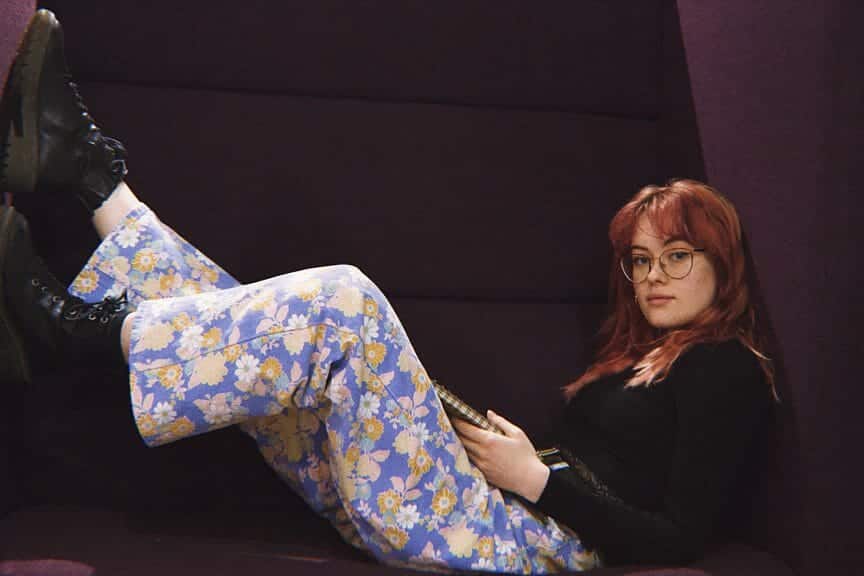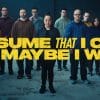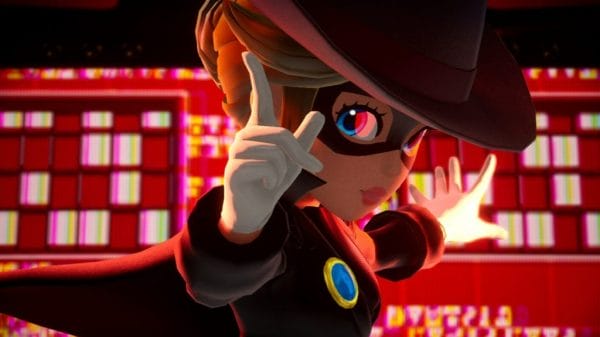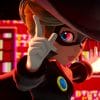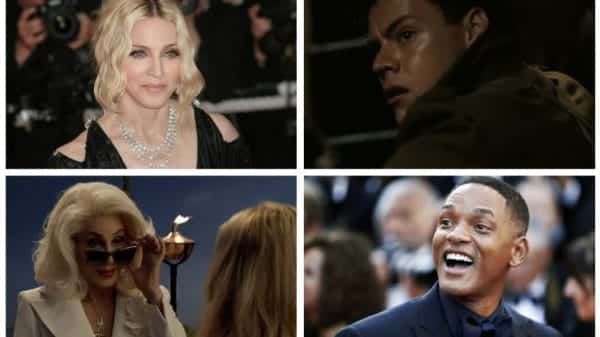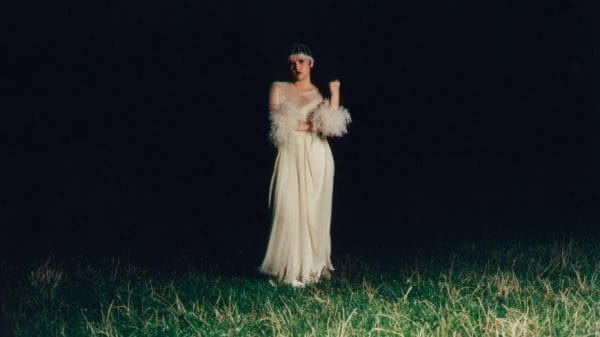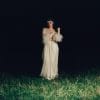What do flowery trousers, a love of gory makeup, and a desire to push the human mind to its limits all have in common? I have no idea, but if you read this interview with talented young director Isabella Bown, you’ll find out.
The Origin Of The Matter
A few months back, I had the fantastic opportunity to attend USW Cardiff’s film student movie screening day. I spent my afternoon speaking to various talented filmmakers and watching their talent on full display. However, one film in particular, Museum Of Modern Trash, caught my eye with its distinct and experimental style. However, the crew scarpered before I could speak to them, leaving my questions about the film to go unanswered… until now.
I reached out to director Isabella Bown, a clearly kind-hearted, talkative, and creatively skilled young woman, for an exclusive one-on-one interview to try and work my way into the mind of someone who could helm such a bizarrely brilliant film. Read on, and join us in our joyfully twisted journey into creativity…
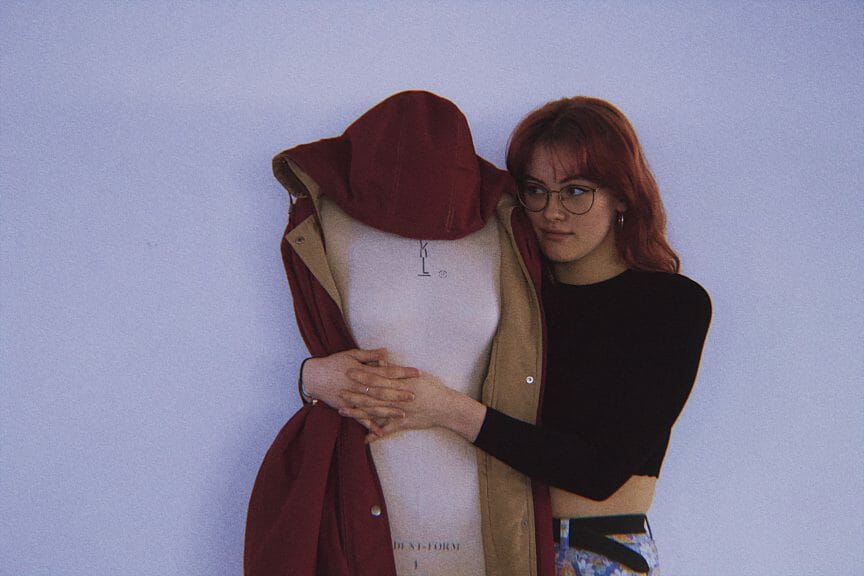
Film Is Finite, TV Is Forever
Isabella (or Izzy, as she prefers to go by), started off by letting me know she’s “always been a very artsy person… I don’t really enjoy writing… I’ve always been more visual”, an aspect that came through to me in Museum, which was very light on dialogue, something we will be returning to later on.
“A lot of my life is based around film, but I don’t actually watch a lot of films.”, Izzy told me, something I found rather surprising given that she is, indeed, a movie director: “The only time I did watch films was with my grandparents… I’d go round theirs and they’d be like ‘We have this DVD of this old film, shall we watch it?… [Sometimes] I’d watch a film with my family in the evening, and then in the morning, I’d watch it again by myself”, simply so she could take in more and lose herself in these on-screen worlds.
“Television, strangely, has had a bigger impact on my life… you just don’t run out of it as quick”, she continued: “I loved The Walking Dead because they have different directors every episode… the episodes can really range in style… Another show I like is Handmaiden’s tale… I really like dystopias.”
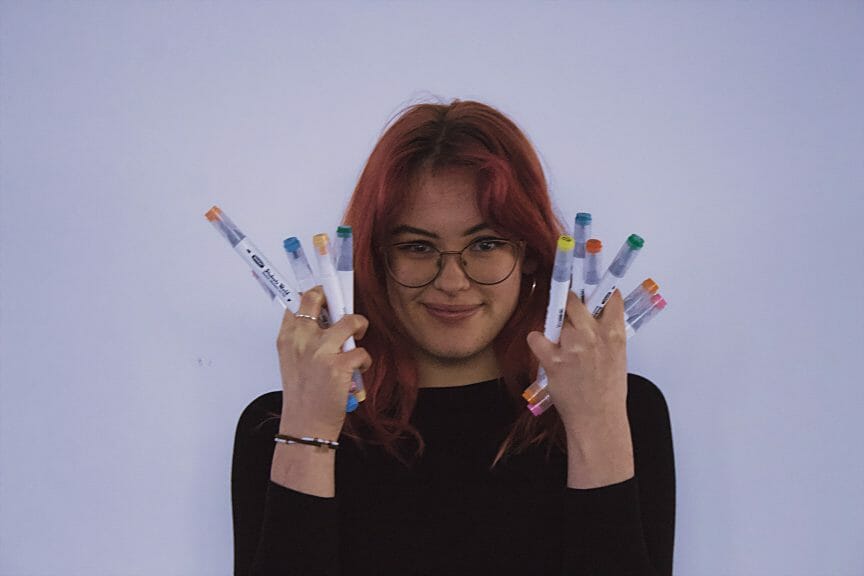
A World Of Colour And Inspiration
Of course, there are still films Izzy is deeply passionate about: “During 2019, my dad bought me, my mum, and him, ODEON passes, so we could go see all of the … award films. I got to go see Little Women… something about Greta Gerwig is just amazing… the way she works with actors, you can just see she wants to have fun on set, and make actors feel comfortable, and that’s what I want to do… they’re the most important people to keep happy on set, and you want them to have fun with it, or it will come through.”
She also had praise to sing for the visual work of a rather famous director: “I like Wes Anderson’s cinematography, but his characters are very stereotypical…he writes very small-minded characters, but puts them in very beautiful worlds.”
However, the film that means the most to Izzy isn’t Little Women, nor is it a Wes Anderson classic: “My favorite film is Juno… they have a whole color scheme in it that I like. I always watch it to cheer me up… even though it’s a love story about a pregnant teenager, it kinda just gives you warmth.”
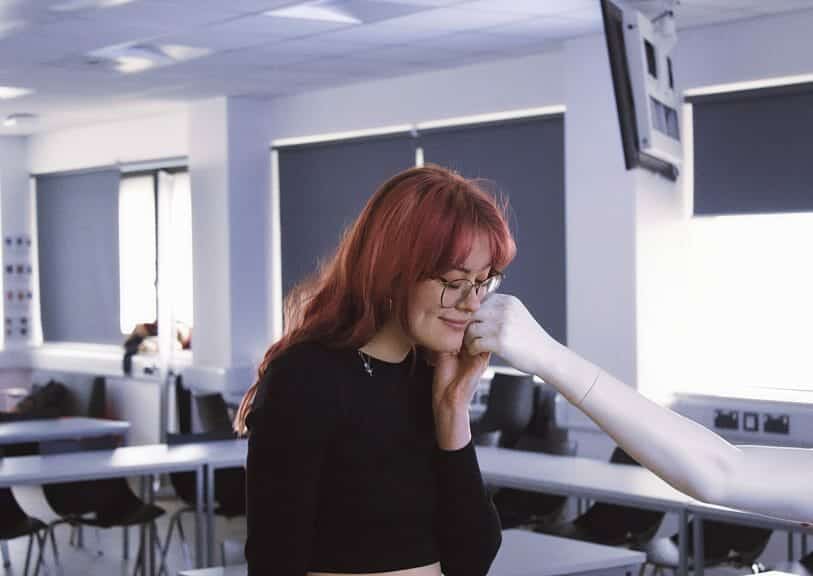
That Personal Touch
Of course, there’s more to films than simply having your ‘favorites’. Films mean different things to different people, and we all have those things we love about the movies, those personal touches that make a moviegoing experience that little bit more special. I pressed Izzy for some of hers:
- “When something get’s portrayed non-verbally really well, like they do something with the camera or the editing that’s really powerful.”
- “When you go see a Marvel film, and the audience is reacting, which is a nice atmosphere!”
- “Those moments that make the whole room go proper silent… like that bit in Babylon, where it gets really horrifying… you can feel the whole audience reacting to it.
- “Those small details in cinema that have the biggest impact… you might just have, like, a pencil on the table, and people aren’t gonna really pay attention to it, but then that pencils the biggest plot point.
- “Using music to build up to a certain climax.”
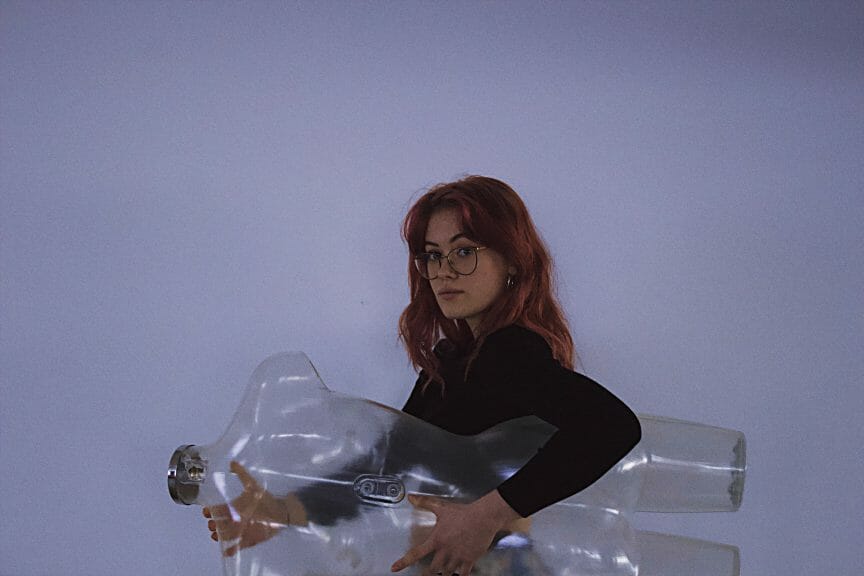
From Gory Beginnings
So how did Izzy get her start as a director? “In school, four of us were in this group… I just stole the role of director without knowing the role existed.” From that moment onwards, she knew the role was for her: “I’d write stories so someone could make it into a film, but then I was like ‘Why don’t I just make the film?…a director is the most storytelling [driven] role in a film.”
Of course, if you want to go further into Izzy’s directorial history: “When I was younger… I used to have Sylvanian families, and I used to use the stop motion animation app… and make little films out of that, or I used to go on Sims and record stories on there.”
Interestingly, though, Izzy didn’t initially start out as a director: “To get my foot in the door… from 14-17, I’d do like, gory make-up, and I had an account that reached 1000 [followers]… People would be like, ‘Oh, are you going to do make-up in films?’ and I’d be like, ‘No bitch, I’m gonna be a director’”. However, even a gore artist has their limits: “I can’t watch body horror, even though I like gore… as soon as you do something unnatural to a human, I freak out. If you [a film] chop off someone’s hand, I’m like, ‘that’s cool, that’s gory’, but if you chop off someone’s hand and sew it to their head, then I’m freaked out.”
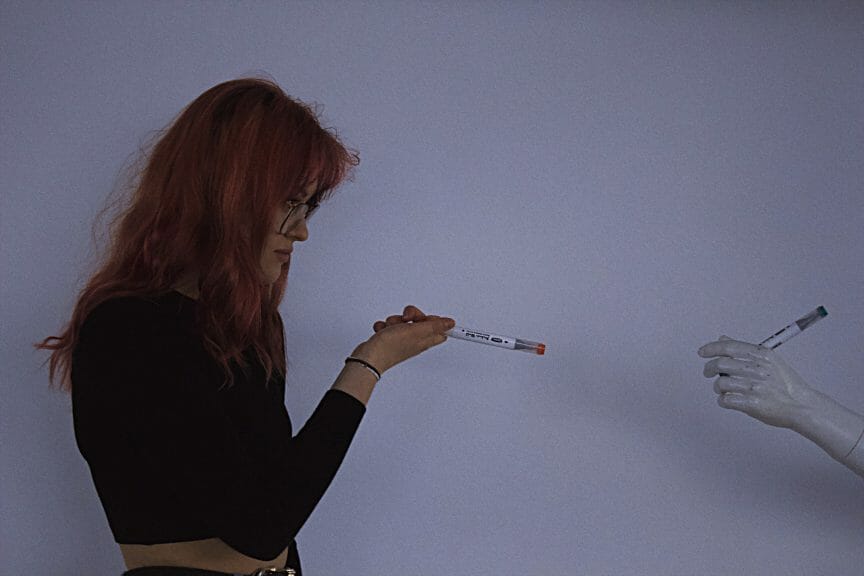
The Children Of The Revolution
Of course, being a young director ain’t easy; youth in the industry is both a gift and a curse: “Working with other younger filmmakers because you all have the same sort of moral standings… you end up having some very daring films getting made… [however] Older generations… don’t really believe in you as much as you’d like them to?”.
Izzy truly believes there is a generational gap in filmmaking and that it must be challenged: “The whole point in being the next generation of filmmakers… is that you’re meant to try new things, otherwise… you’re just building off the last generation… you can decide if you’re gonna stay in the old generation, or join the new one, and make waves with it.”
“It’s fun being a young filmmaker”, she added, “but it’s also terrifying… it’s a lot of just proving yourself again and again… with Museum [her latest movie], a lot of people were like, ‘you can’t do that, you can’t do that’, and I was like, ‘Watch me’.”
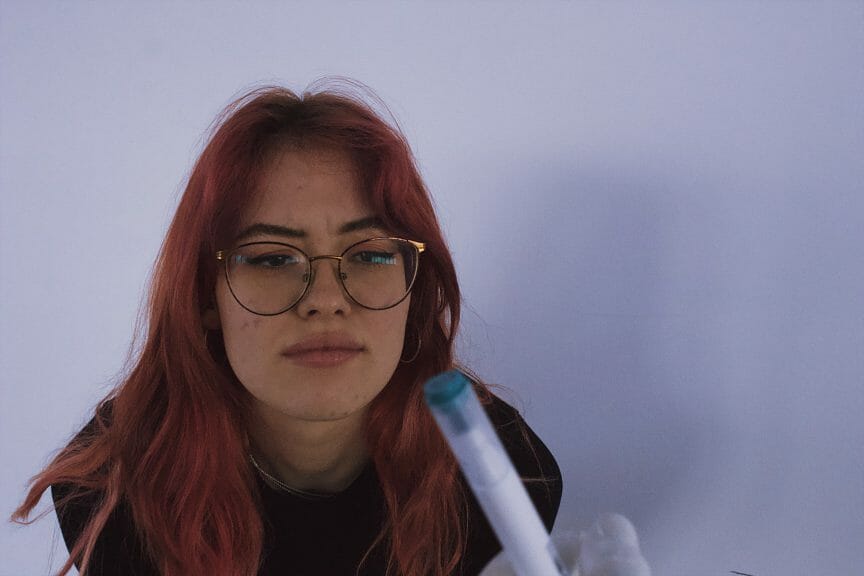
Getting Your Voice Heard
An issue that Izzy wished to speak on specifically here is her experience as a female director in the film industry; I didn’t push her to speak on this, as I did not wish for her to feel like this interview was defined by her gender, but she requested we dedicate a segment to it so she can speak on her experiences:
“There’s been moments where I’m the only woman director in class… where I’d get spoken over, or not actually talk in classes… I’d not be treated exactly like a director… Everyone gets excited and talks over each other, and they don’t realize the power dynamic they are playing with when they do that.”
“My film at the end of the second year, I was giving myself a final chance to direct, and if that didn’t go well, I was gonna give up, because all the chances before had gone really badly; I’d show up to set, no one would know I was the director, they’d think one of the guys was the director. At first, I thought, ‘maybe it’s just my skill and not my gender’, and then I made a film that the lecturers liked, and the actors enjoyed working with me on, and I was like, ‘okay, it’s not, it’s just my gender’. I realized I just had to… push a bit harder to get heard… That’s the most important thing for a young filmmaker: keep speaking til they’ve stopped talking and started listening… speak up more about problems on set… or the whole creative vision is lost, and that’s what went wrong with my past films.”
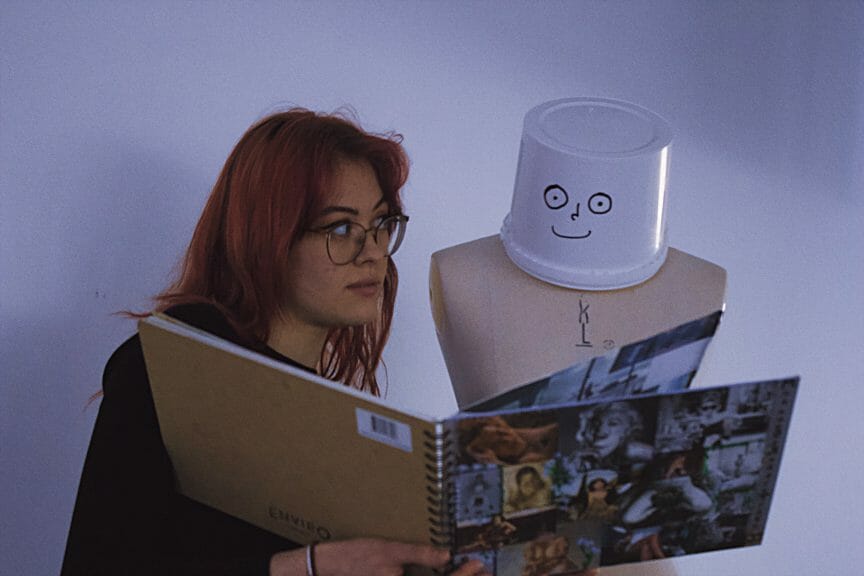
Creating A Vision
Now let’s talk a bit more specifically about Izzy’s latest short film, Museum Of Modern Trash, the film which convinced me this was an interview that needed to be had. In Izzy’s own words, the film is “Based in a world where trash is everywhere… [there’s] a character who likes to live like a hermit… one day, they come across a museum…”. Izzy described a lot more, but I’ve cut it to keep it vague. It’s an experimental film, and one best viewed blind.
As I have discovered in conversations with other directors, making the film is no easy feat: “It’s great and stressful. If it’s exhausting, that means you’re doing it right… making a film feels horrible the whole way through, but it’s so worth it in the end. It’s like eating healthier for ages, to feel healthier.”
“You’re up all night thinking, ‘we’re not gonna pull this off’”, she continued, “and then you’re up on the day, and it’s just amazing. When you see the shots, it’s a great feeling… everyone’s vision joined together… If you have the right editor it’s great because even if it’s not your vision coming across, it’s their vision of your ideas, and it still works… that’s how you know you’ve created something that works.”
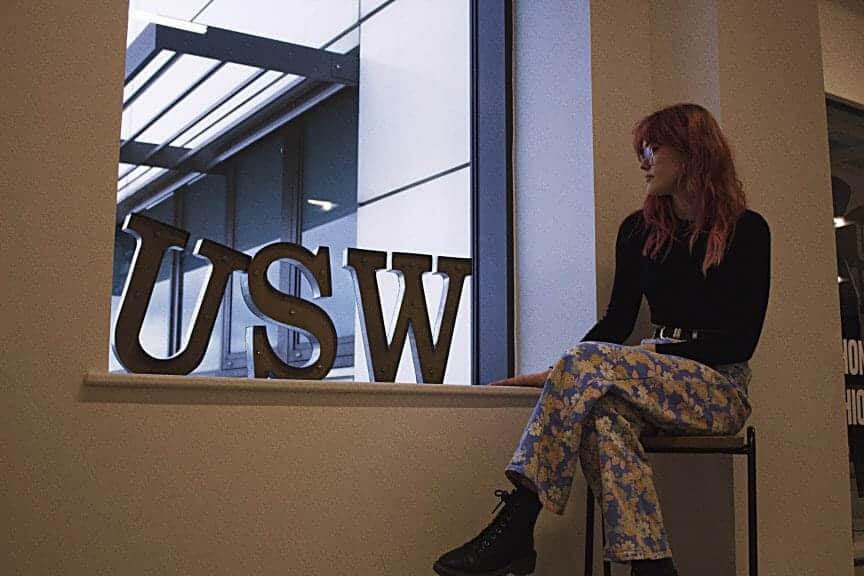
The One With The Coffee Shop
So how does one develop the idea for such an experimental movie? “[The Writer] came to me one day and said, ‘I’m gonna write a film with a female character, and I’d love to have a female director on the piece. I like your work… can you please have a meeting with me?… We [the crew] all sat in a little coffee shop as [the writer] described his ideas, and instantly I was like, ‘yeah’”.
Of course, in a film with a silent protagonist, having a strong lead performer who can say a lot with a little is vital, and Izzy understood that in the casting process: “Our actor… they came in for their audition. Because it was a non-dialogue film, I said, ‘Bring a monologue that you think matches the character best’… That way, we could capture their own understanding of the piece and their acting ability at the same time… they went online and found an article about being a hermit and turned it into a monologue, and I was like, ‘Okay, this person is perfect’.”
Not everyone was so sure about the idea of an experimental student film, however: “We had a lot of people saying ‘This sounds pretentious’, and I was like, ‘Okay, let’s make it more pretentious’… but really, I just wanted to explore the medium as much as possible.”
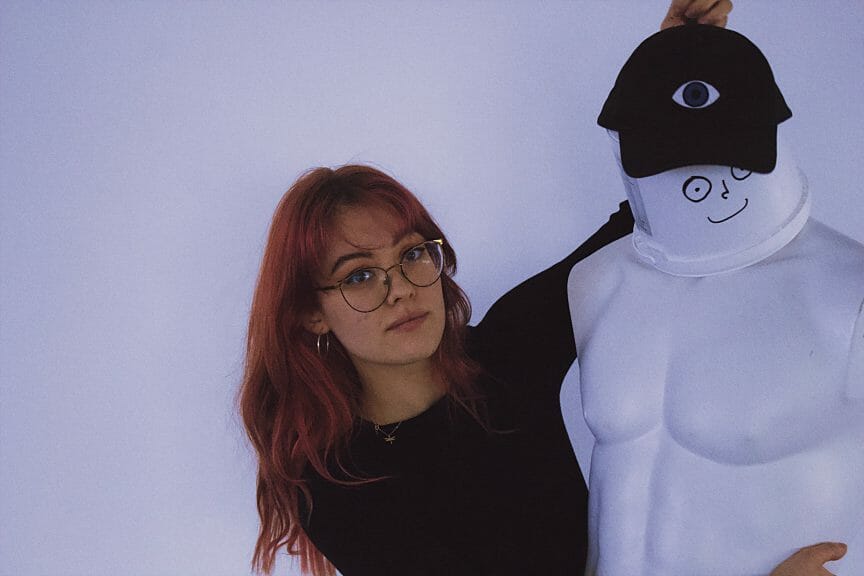
A Silent Study
Now, when watching the film, it was clear to me from the get-go that it was deeply experimental in style, and I had to question Izzy on how she went about crafting a film in that style: “I’ve done very narrative-driven fictional films, and working through the script of the museum, the more we read through it the more me and the writer were like ‘This is something different, this is experimental’”
In approaching the experimental nature of it all, Izzy was sure to utilize the talents of her crew: “There was hardly any dialogue, so we just got rid of the dialogue. The writer is a sound guy as well, so we were like, ‘let’s use the [sounds]… to tell the story’.” As well as being driven by sound, Izzy wanted the film to be visually driven too: “I’ve always been a very visual filmmaker, I like using colors… making Museum, I was like ‘I can do that instead of dialogue’…Every single part of the film had to be precisely planned…I read a theory book about editing structure and montage structure
Crafting emotional responses from people through non-dialogue deeply appealed to Izzy: “Mentally manipulating the audience might be my style… Whatever people take away from it, they do… as long as you use the editing, actors, sound, etc. to add in little details, then people can create their own stories from yours”. Izzy laughed, adding: “I wanna go more into… non-dialogue films… I’m really enjoying silently studying people.”
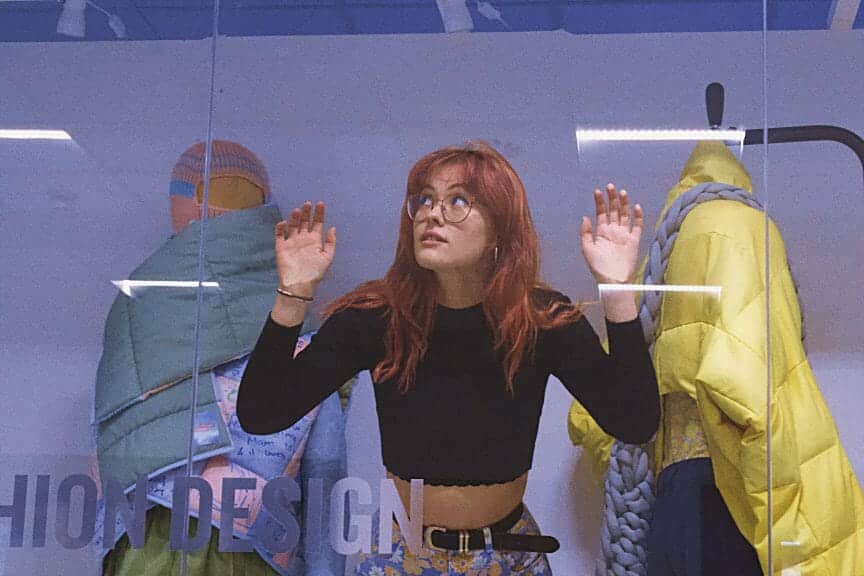
Saying A Lot With A Little
The fact that Museum was a short film added to the challenge of making it for Izzy and the appeal: “If you make a short film, you need it to leave people with questions… you want people rewatching it, as it’s easier with the runtime… You don’t wanna give yourself too many layers to work with because that’s what we had with Museum for a bit. I gave it too many meanings… and was like, ‘Okay, I’m gonna strip it down, and everyone can make their own meaning’”.
Upon my request, Izzy also defined what she thinks a short film is. I felt her answer was rather excellent: “It’s a short film when the smallest detail has a big meaning… like, a man’s going to a shop, and he buys something and goes home… but then the sub context of the film is massive… it could be about grief, or finding joy.”
In directing a short film, Izzy found the opportunity to create a distinct visual style and tinkered with quite a few ideas for it: “One of the original ideas I had was that each frame could look like a piece of art… we could get female artists and recreate their art as a moving image, but that was just a bit too difficult.”
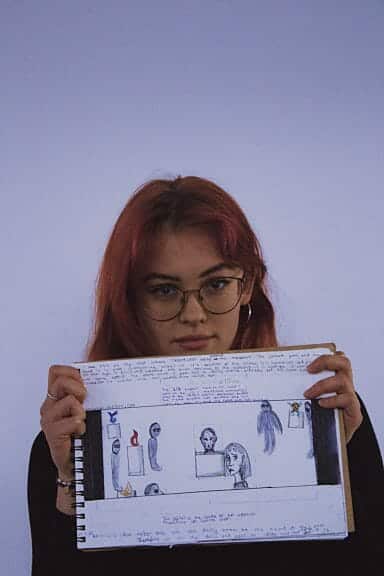
The Filmmaker’s Bible
As Izzy said, making the film “was not easy… it was pain.” However, it is also a labor of love: “I had this weird connection to the film… I see it as my shared baby”. Emphasis on the word “shared”, as Izzy highlights: “Collaboration is important; otherwise no one’s on the same page, and no one’s got their heart in it… It’s about being open-minded toward everyone’s ideas… Collaborating with actors is the best because the more they understand the character, and the more you respect the character they’ve created, the more authentic the performance”.
However, the actor isn’t the only one honing in on the characters: “I delved into the character’s personality more than anything… I saw the character as having autism… they have a special interest, they’re very protective over this special interest, and their emotions are complicated to regulate… I feel like the film came across neurodivergent in a way… being looser with the rules of film.”. “I really tried to treat the character’s motives loosely”, she added, “which is really what you’re taught not to do; people do stuff on a whim… the characters are just in the moment”.
Lastly, a key part of her creative process that Izzy pointed out to me was her “Bible” [Pictured above], a book full of concept art, plans, and relevant imagery: “It is my book that has everything in one place… it also looks really cool… I could take it to set and have everything there on the day… this is literally how a computer works, but I don’t like computers… there’s this new thing called ‘Paper’!”. As for why Izzy chose such a name for it? “I call it my bible because it has the rules I must follow.” Simple. I like it.
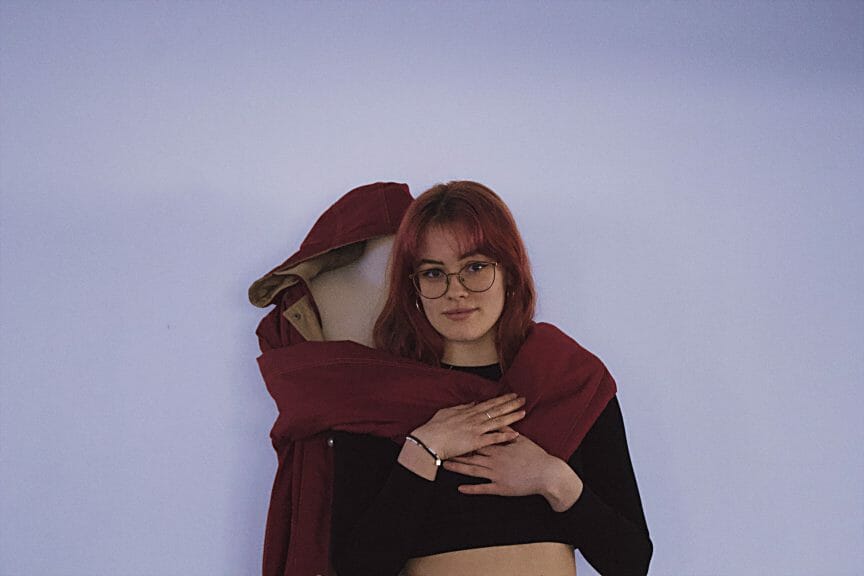
Tell Your Own Story
And so, as the end of another interview draws near, I leave you with these closing thoughts of ambition and hope from Izzy for what she’d like to achieve in the future: “My hope for the future is to be more independent in filmmaking, so I can collaborate with more independent filmmakers… I’d love to be lucky enough to run a production company that allows people to create their own stories… and be their own storyteller.”


